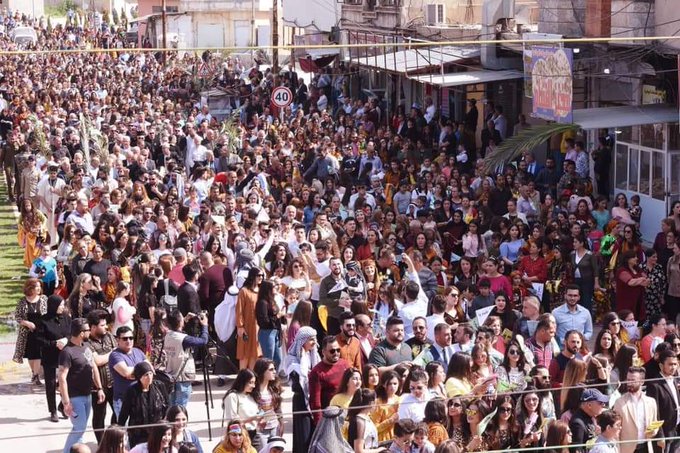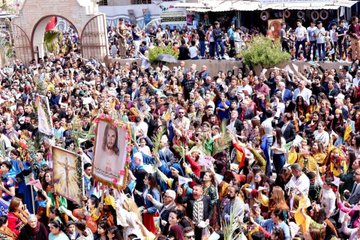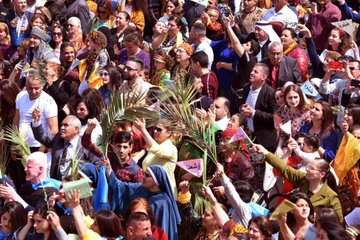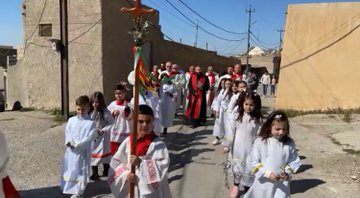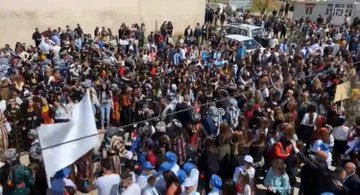paige e-mailed asking me to highlight the above.
now for something less fun, a look at how awful our press truly is. glenn greenwald ('substack') notes how off the rails the u.s. press has gone:
The daily newspaper USA Today is the second-most circulated print newspaper in the United States — more than The New York Times and more than double The Washington Post. Only The Wall Street Journal has higher circulation numbers.
On Sunday, the paper published and heavily promoted a repellent article complaining that “defendants accused in the Capitol riot Jan. 6 crowdfund their legal fees online, using popular payment processors and an expanding network of fundraising platforms, despite a crackdown by tech companies.” It provided a road map for snitching on how these private citizens — who are charged with serious felonies by the U.S. Justice Department but as of yet convicted of nothing — are engaged in “a game of cat-and-mouse as they spring from one fundraising tool to another” in order to avoid bans on their ability to raise desperately needed funds to pay their criminal lawyers to mount a vigorous defense.
In other words, the only purpose of the article — headlined: “Insurrection fundraiser: Capitol riot extremists, Trump supporters raise money for lawyer bills online” — was to pressure and shame tech companies to do more to block these criminal defendants from being able to raise funds for their legal fees, and to tattle to tech companies by showing them what techniques these indigent defendants are using to raise money online.
The USA Today reporters went far beyond merely reporting how this fundraising was being conducted. They went so far as to tattle to PayPal and other funding sites on two of those defendants, Joe Biggs and Dominic Pezzola, and then boasted of their success in having their accounts terminated:
As of Wednesday afternoon, the Biggs fundraiser was listed as having received $52,201. Pezzola had received $730. Biggs' campaign disappeared from the site shortly after USA TODAY inquired about it….
Friday, a USA TODAY reporter donated to Pezzola's fundraiser using Stripe. Stripe told USA TODAY it does not comment on individual users. A USA TODAY reporter was able to make a $1 donation to Pezzola's fundraiser using Venmo, a payment app owned by PayPal. After being alerted by USA TODAY, Venmo removed the account.
Soon a PayPal account took its place. PayPal caught that and removed it, too.
Wow, what brave and intrepid journalistic work: speaking truth to power and standing up to major power centers by . . . working as little police officers for tech giants to prevent private citizens from being able to afford criminal lawyers. Clear the shelves for the imminent Pulitzer. Whatever you think about the Capitol riot, everyone has the right to a legal defense and to do what they can to ensure they have the best legal defense possible — especially when the full weight of the Justice Department is crashing down on your head even for non-violent offenses, which is what many of these defendants are charged with due to the politically charged nature of the investigation.
i guess it allows them to continue to ignore the harm our own government does, huh? while pretending they're dong journalism, right?
let's close with c.i.'s 'Iraq snapshot:'
Monday, March 29, 2021. Iraq celebrates Palm Sunday while corruption continues.
Palm Sunday was celebrated by Christians around the world, including in Iraq. Palm Sunday marks the day Jesus Christ entered Jerusalem, the beginning of the trip that ends with him on the cross. They celebrated Palm Sunday even when ISIS held territory in Iraq. The video below is from three years ago. We'll note this Tweet:
And we'll note this Tweet:
Stayin on the topic of religious minorities in Iraq, AFP reports:
The death of Dhafer Eliyahu hit Iraq hard, not only because the doctor treated the neediest for free, but because with his passing, only four Jews now remain in the country. At the Habibiya Jewish cemetery in the capital Baghdad, wedged between the Martyr Monument erected by ex-dictator Saddam Hussein and the restive Shiite stronghold of Sadr City, an aged Muslim man still tends to the graves, but visitors are rare.
The day of Eliyahu’s burial, “it was me who prayed over his grave”, the doctor’s sister said. “There were friends” of other faiths who prayed too, each in their own way, she added, refusing to give her name. To hear Jewish prayer out in the open is rare now in Baghdad, where there is but one synagogue that only opens occasionally and no rabbis. But Jewish roots in Iraq go back some 2,600 years.
According to biblical tradition, they arrived in 586 BC as prisoners of the Babylonian king Nebuchadnezzar II after he destroyed Solomon’s Temple in Jerusalem. In Iraq, they wrote the Babylonian Talmud on the very land where the patriarch Abraham was born and where the Garden of Eden is considered by some to have been located, in the heart of the Mesopotamian marshlands.
More than 2,500 years later, in Ottoman-ruled Baghdad, Jews were the second largest community in the city, making up 40 percent of its inhabitants. Some were very prominent members of society like Sassoon Eskell, Iraq’s first ever finance minister in 1920, who made a big impression on British adventurer and writer Gertrude Bell.
When the Iraqi government prepares deals, there's a lot of press about it. When the money comes in -- and quickly vanishes -- not so much. ARABIAN BUSINESS notes:
Iraq is discussing a “giant” agreement with French oil giant Total SE to build large infrastructure installations, develop oil fields and produce gas, Oil Minister Ihsan Abdul Jabbar told Asharq News in an interview that aired on Saturday.
The minister said he expected the contract to be finalized before July. The relationship with Total will be based on targeting low-carbon industry and capturing all flaring gas, and is set to produce 1GW of solar energy in the first stage. A specialized team from the oil ministry is leading these discussions with Total.
BLOOMBERG NEWS adds, "Iraq this year is also expected to ink a deal to build an oil export pipeline from the southern province of Basra to Jordan’s Aqba port on the Red Sea. A framework agreement may be signed before mid-April, Abdul Jabbar said." Where will that money go? If recent history is pattern, it won't go to the people.
And when someone blows the whistle on corruption? They don't become heroes. Instead, they have to fear for their own life. THE VANGUARD reports:
Hassanein
Mohsen spent months protesting against corruption in Iraq. He also
lodged complaints against officials. But now he is shunned as a
whistleblower and sees only one way out: emigration.
“You can’t live here without paying bribes,” the unemployed father-of-four told AFP. “I’ve given everything I can, and this country is still sinking lower.”
The stout 36-year-old engineer from the shrine city of Karbala said he had been driven to despair by the endemic graft in his homeland, ranked the 21st most corrupt country by Transparency International. In January, the advocacy group said public corruption had deprived Iraqis of basic rights and services, including water, health care, electricity and jobs. It said systemic graft was eating away at Iraqis’ hopes for the future, pushing growing numbers to try to emigrate.
AFP's Maya Gebeily Tweets:
From Maya's AFP report "Worse than a jungle:"
Like most of the government officials, port workers and importers interviewed for this story, this worker cited threats to his life and asked to speak anonymously.
The network they described arises from Iraq's glacially slow bureaucracy, fractious politics, limited non-oil industry and endemic corruption that is itself largely a product of years of chaos in the wake of the 2003 US invasion to topple dictator Saddam Hussein.
Customs provide one of the few sources of state revenues, and to keep disparate groups and tribes happy, many of them close to Iran, entry points are divvied up among them and federal duties largely supplanted by bribes.
"There's a kind of collusion between officials, political parties, gangs and corrupt businessmen," Iraq's Finance Minister Ali Allawi told AFP.
Who's watching the store? AFP reports on one person watching:
Suitcases of spreadsheets are wheeled into her office, as infuriated MPs storm out. Her unmistakeable voice booms down the finance ministry hallways.
Meet Taif al-Sami, Iraq's budget baroness.
Detractors say she's an old-fashioned micromanager, while fans praise her as a bulwark against pervasive state corruption in Iraq -- and an independent, vocal woman in a male-dominated bureaucracy.
But they agree that the 57-year-old head of the ministry's budget department knows her stuff.
"She stuck out because she filled a gap. She has good administrative abilities and very good financial knowledge," Finance Minister Ali Allawi told AFP.
Sami has the last word on individual budget disbursements, meaning parliamentarians and ministry officials need her to green-light funds for projects, promotions or other payments.
She often spots irregularities, including an attempt by a government ministry in 2018 to score a bigger annual budget by artificially increasing its employees' pay grades and introducing "ghost employees" -- workers that exist on the payroll but not in real life.
"It would have cost the Iraqi state billions of dinars," said Sami, or at least hundreds of thousands of US dollars out of a $100-billion budget.
It's a classic graft scheme in Iraq: that same year, parliament discovered that some $450 billion in public funds had been embezzled since 2003, including in similar ghost employee schemes.
"She has a major role in stopping budget corruption," said a top Iraqi official who worked with Sami.
"The country would have disintegrated without her," said the official, who did not want to be named.
[. . .]
She said that she once requested well-connected finance ministry couriers be changed after finding out they were only sending correspondence if they received a bribe.
Within hours, men in SUVs with tinted windows surrounded her home, demanding the couriers be reinstated.
"Another time, I refused a request from a provincial official and the person involved threatened to drag me and throw me out the window," Sami recalled.
"If I belonged to a party, I'd be untouchable."
The corruption in Iraq is a national scandal. It's why Iraqis have been protesting for over a year now.
It goes on and on. Prime ministers are sworn in with promises that they will end corruption and then they leave office with the corruption worse than ever.
In the video below, a former deputy minister explains that the corruption is political.
In the video below, Minister of Finance Ali Allawi states that the US government is complicit in the corruption.
Corruption hasn't changed a great deal since Ghaith Abdul-Ahad filed this report back in 2018 for THE GUARDIAN:
The opening up of Iraq’s enormous verified oil reserves to foreign expertise in the aftermath of the fall of Saddam Hussein was hailed as the means to kickstart its economy and potentially transform the south into an economic stronghold. Instead, ordinary Iraqis have seen little or no benefit from the proceeds of the country’s multibillion-dollar oil industry, much of which has been siphoned off by corrupt politicians. Across the south in recent months, simmering anger over corruption and unemployment has been fuelled by the dire state of public services, regular power cuts and water shortages.
Once there was a time when the Bani-Mansour land, not far from where the Tigris and Euphrates meet, had water and more than 300,000 palm trees, villagers said. Large numbers of buffaloes and cows cooled themselves in the green muddy waters of its canals.
But drought and the intrusion of saltwater from the Gulf have wiped out most of the palm groves, the cattle have been sold, local rivers have dried up and the canals have stagnated, clogged with rubbish. Corruption and mismanagement on the part of local and central government, both dominated by a kleptocracy of religious parties that have ruled Iraq for more than a decade, has exacerbated a slow-motion environmental disaster.
The oil companies, which are supposed to train and hire a workforce from local populations and invest back into development projects, are forced to hire those with connections to powerful tribal sheikhs and the Islamist parties. Funds for those populations rarely materialise and almost none of the oil revenuestrickle down to the population. Meanwhile, local militias with links to clans and political parties have formed their own companies, which land lucrative security contracts with subsidiaries of foreign oil firms.
In the eyes of the local villagers, the heavy traffic rumbling along the narrow road has become a daily reminder of the contrast between the boundless wealth lying underneath their homes and the abject poverty above ground.
We'll close with this from South Central Michigan Greens:
